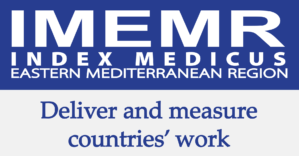Emotional Intelligence and Empathy among Ophthalmologists
DOI:
https://doi.org/10.53685/jshmdc.v4i2.166Keywords:
Emotional intelligence, Empathy, Ophthalmologist.Abstract
Background: Emotional intelligence and empathy plays a key role in coping with varying situations in daily
life.
Objective: The purpose of this study was to determine emotional intelligence and empathy among
ophthalmologists.
Methods: This cross-sectional study was carried out at the College of Ophthalmology & Allied Vision
Sciences from 1st June 2022 till 31st December 2022. After the ethical approval of the study, a Google form was developed which included Schutte‘s scale (Emotional Intelligence) and Davis‘s Interpersonal index (Empathy) questions in addition to those related to basic demographic information. A sample size of 19 was calculated and sampling was done by non-probability convenient sampling. The proforma was sent via social media application (WhatsApp) to study participants. A total of 39 ophthalmologists including residents and faculty members of either gender responded to be part of the study. A comparison of emotional intelligencescores was done by applying Independent sample t-test and one-way ANOVA.
Results: A total of 39 ophthalmologists participated in the study with a mean age of 35.31 ± 9.83 years. The Emotional Appraisal‖ mean score was found to be highest in post-graduate residents (p = 0.05) and the mean
scores of the sub-scale ―Non-Verbal Communication‖ was highest in faculty (Assistant professor or above in designation) followed by Postgraduate resident (PGR), (p=0.04). Comparison of empathy scores revealed asignificant difference in the sub-scales of the Davis scale ―Perspective taking‖ (p = 0.04) and Personal distress (p=0.03) between the male and female participants.
Conclusion: Among ophthalmologists, postgraduate residents were better in terms of emotional intelligence than faculty who had better skills with regards to non-verbal communication.
References
Omid A, Haghani F, Adibi P. Emotional Intelligence: An Old Issue and a New Look in Clinical Teaching. Adv Biomed Res. 2018; 21(7):32. doi:10.4103/2277-9175.2259 26. DOI: https://doi.org/10.4103/2277-9175.225926
Stonehouse D. The importance of person-centered care and how to achieve it. Br J Healthcare Assist. 2021;15(7).doi:10.12968/bjha. 2021.15.7.334. DOI: https://doi.org/10.12968/bjha.2021.15.7.334
Britten N, Stevenson FA, Barry CA, Barber N, Bradley CP. Misunderstandings in prescribing decisions in general practice: qualitative study. BMJ. 2000; 320: 484-487.doi:10.1136/bm j.320.7233.484. DOI: https://doi.org/10.1136/bmj.320.7233.484
Johnson DR. Emotional intelligence as a crucial component to medical education. Int J Med Educ. 2015; 6:179–83. doi:10.5116/ijme.5654.30 DOI: https://doi.org/10.5116/ijme.5654.3044
Jeffrey D, Downie R. Empathy-can it be taught? J R Coll Physic Edin. 2016; 46(2):107-112. doi:10.4997/JRCPE.2016.2 10 DOI: https://doi.org/10.4997/jrcpe.2016.210
Bratton VK, Dodd NG, Brown FW. The impact of emotional intelligence on the accuracy of self-awareness and leadership performance. Leader Org Dev J. 2011; 32(2): 127-149. doi:10.1108/014377311111 12971. DOI: https://doi.org/10.1108/01437731111112971
Jonker CS, Vosloo C. The psychometric properties of the Schutte Emotional Intelligence Scale: Empirical Research. SA J Indust Psychol. 2008; 34(2): 21-30.https://hdl.handle.net/ 10520/ EJC89156 DOI: https://doi.org/10.4102/sajip.v34i2.689
Keaton SA. Interpersonal Reactivity Index (IRI) (Davis, 1980). The Sourcebook of listening research: Methodology and measures. 2017: 340-347. doi:10.1002/9781119102991.ch34 DOI: https://doi.org/10.1002/9781119102991.ch34
Holliday EB, Bonner JA, Formenti SC, Hahn SM, Kalnicki S, et al. Emotional Intelligence and Burnout in Academic Radiation Oncology Chairs. J Healthcare Manag. 2017; 62(5):302-31 3.doi:10.1097/J HM-D-16-00001. DOI: https://doi.org/10.1097/JHM-D-16-00001
Sharaf AM, Abdulla IH, Alnatheer AM, Alahmari AN, Alwhibi OA, et al. Emotional Intelligence and Burnout Among Otorhinolaryngology–Head and Neck Surgery Residents. Front Pub Health. 2022; 10. doi:10.3389/fpubh.2022.851408 DOI: https://doi.org/10.3389/fpubh.2022.851408
Adin DB, Royal KD, Adin CA. Cross-sectional assessment of the Emotional Intelligence of Fourth-Year Veterinary Students and Veterinary House Officers in a Teaching Hospital. J Vet Med Educ. 2020; 47(2):193-201.doi:10.3138/ jvme.0518-065r. DOI: https://doi.org/10.3138/jvme.0518-065r
Lopes PN, Salovey P, Straus R. Emotional intelligence, personality, and the perceived quality of social relationships. Pers Indiv Differ. 2003; 35(3): 641– 658.doi:10.1016/S0191-8869 (02)00242-8 DOI: https://doi.org/10.1016/S0191-8869(02)00242-8
Biswas S, Invalli S. A snooping on the factor structure of Schutte self-report emotional intelligence test among the engineering students. Int J Trend Sci Res & Dev. 2017; 2(1):1433-1442.doi:10.31142/ijtsrd8268 DOI: https://doi.org/10.31142/ijtsrd8268
Zeb S, Akbar A, Gul A, Haider SA, Poulova P, Yasmin F. Work–Family Conflict, Emotional Intelligence, and General Self-Efficacy Among Medical Practitioners During the COVID-19 Pandemic. Psychol Res Behav Manag. 2021; 14:1867–1876.doi:10.2147/PRBM.S333070 DOI: https://doi.org/10.2147/PRBM.S333070
Petrides KV, Perazzo MF, Peraz-Diaz PA, Jeffrey S, Richardson HC et al. Trait emotional intelligence in surgeons. Front Psychol. 2022; 13: 829084.doi:10.3389/fpsyg.202 2.829084. DOI: https://doi.org/10.3389/fpsyg.2022.829084
Shoji MK, Venincasa MJ, Sridhar L. The Impact of the COVID-19 Pandemic on Ophthalmology Resident Perceptions of Clinical Experience, Surgical Training, and Personal Life. J Acad Ophthalmol. 2021; 13(02): e288-e297.doi:10.1055/s-0041-1740314 DOI: https://doi.org/10.1055/s-0041-1740314
Sa B, Ojeh N, Majumder AZ, Nunes P, Williams S, Rao SR et al. The Relationship between self-esteem, emotional intelligence, and empathy among students from six health professional programs. Teach Learn Med. 2019; 31(5).doi:10. 1080/ 10401334.2019.1607741 DOI: https://doi.org/10.1080/10401334.2019.1607741
Sundararajan S. Gopichandran V. Emotional intelligence among medical students: a mixed methods study from Chennai, India. BMC Med Educ. 2018; 18: 97.doi:10.1186/s12909-018-12 13-3 DOI: https://doi.org/10.1186/s12909-018-1213-3
Altwijri S, Alotaibi A, Alsaeed M, Alsalim A, Alatiq A, Al-Sarheed S, Agha S, Omair A. Emotional intelligence and its association with academic Success and performance in medical students. Saudi J Med & Med Sci. 2021;9(1):31.doi:10.4103/sjmms.sjmms_37 5_19 DOI: https://doi.org/10.4103/sjmms.sjmms_375_19
Marembo M, Chinyamurindi WT. Impact of demographic variables on emotional intelligence levels amongst a sample of early career academics at a South African higher education institution. SA J Human Resource Manag. 2018; 16(1): 1-9. doi:10.4102/sajhrm.v16i0.1051 DOI: https://doi.org/10.4102/sajhrm.v16i0.1051
Sohail M, Yasmin R, Ahmad A, Illyas R. Emotional Intelligence of Medical and Dental Doctors with Different Clinical Experiences: A Cross-Sectional Study. J Islam Int Med Coll. 2020; 15(1):57-62.
Downloads
Published
How to Cite
Issue
Section
License
Copyright (c) 2023 Muhammad Shaheer, Asima Rafique, Zahid Kamal Siddiqui

This work is licensed under a Creative Commons Attribution-NonCommercial 4.0 International License.
You are free to:
- Share — copy and redistribute the material in any medium or format
- Adapt — remix, transform, and build upon the material
- The licensor cannot revoke these freedoms as long as you follow the license terms.
Under the following terms:
-
Attribution — You must give appropriate credit, provide a link to the license, and indicate if changes were made. You may do so in any reasonable manner, but not in any way that suggests the licensor endorses you or your use.
-
Non Commercial — You may not use the material for commercial purposes.
-
No additional restrictions — You may not apply legal terms or technological measures that legally restrict others from doing anything the license permits.





















